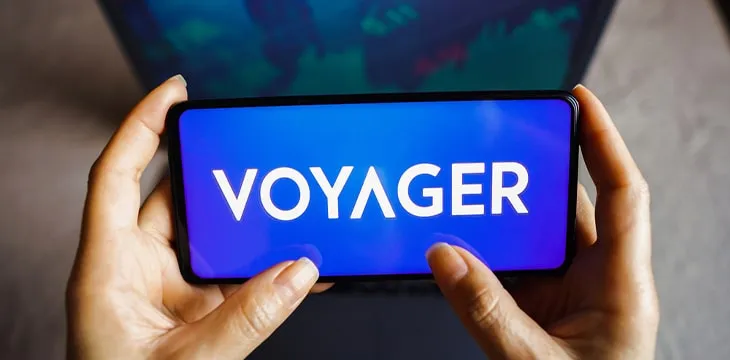|
Getting your Trinity Audio player ready...
|
Voyager declaring bankruptcy was bad, but on July 28 it got even worse; the Federal Reserve and the Federal Deposit Insurance Corporation (FDIC) served Voyager with a cease-and-desist letter for making false and misleading claims about being FDIC insured.
Together with the @FederalReserve, we issued a letter to #VoyagerDigital, demanding they cease and desist from making false and misleading statements on their FDIC deposit insurance status and take immediate action to correct these false statements. https://t.co/sWv1n7z710
— FDIC (@FDICgov) July 28, 2022
The agencies claim that Voyager made “false and misleading statements, directly or by implication, concerning Voyager’s deposit insurance status.” They are requesting that Voyager “remove any and all statements, representations, or references that suggest in any way, expressly or implicitly, that (1) Voyager is insured by the FDIC; (2) customers who invested with the Voyager cryptocurrency platform would receive FDIC insurance coverage for all funds provided to, held by, on, or with Voyager, without reference to the insured depository institution account; or (3) the FDIC would insure customers against the failure of Voyager itself, from Voyager’s websites.”
In other words, Voyager users aren’t entitled to an FDIC insurance payout from the Voyager bankruptcy event, and there is a strong possibility that users won’t be able to recoup any of their money that is locked on Voyager. The Federal Reserve and the FDIC are giving Voyager 48 hours to comply and confirm that they have fulfilled the agency’s cease-and-desist request.
Voyager Digital FDIC claims
These false and misleading claims from Voyager were a key part of its messaging when it announced it would be filing for bankruptcy.
Voyagers, today we began a voluntary financial restructuring process to protect assets on the platform, maximize value for all stakeholders, especially customers, and emerge as a stronger company. Voyager will continue operating throughout.https://t.co/TxlO4eua8E
— Stephen Ehrlich (@Ehrls15) July 6, 2022
In Voyager’s official announcement, it said:
“Customers with USD deposits in their account(s) will receive access to those funds after a reconciliation and fraud prevention process is completed with Metropolitan Commercial Bank.”
But shortly after Voyager released that statement, Metropolitan Commercial Bank responded with its own announcement, saying that:
“FDIC insurance coverage is available only to protect against the failure of Metropolitan Commercial Bank,” and that “FDIC insurance does not protect against the failure of Voyager, any act or omission of Voyager or its employees, or the loss in value of cryptocurrency or other assets.”
Voyager Digital bankruptcy: what does this mean?
The only time FDIC will kick in for Voyager’s users would be if Metropolitan Bank goes bust. That being said, Voyager and its users are not able to tap into FDIC insurance due to the failure of Voyager itself.
Based on their initial announcement, it seems like a significant part of Voyager’s strategy to make its users whole involved Metropolitan Bank, and the FDIC insurance Voyager’s account has there. But the cease-and-desist, as well as the statement from Metropolitan Commercial Bank, indicate that Voyager’s customers are likely to get the short end of the stick as Voyager begins liquidating its assets as part of the bankruptcy proceedings since the user’s locked funds aren’t insured. When liquidation begins, Voyager’s creditors will be the first ones that are paid out, and Voyager’s customers will be the very last individuals to receive payment—if there is any money left to distribute.
Follow CoinGeek’s Crypto Crime Cartel series, which delves into the stream of groups from BitMEX to Binance, Bitcoin.com, Blockstream, ShapeShift, Coinbase, Ripple,
Ethereum, FTX and Tether—who have co-opted the digital asset revolution and turned the industry into a minefield for naïve (and even experienced) players in the market.

 07-02-2025
07-02-2025 





